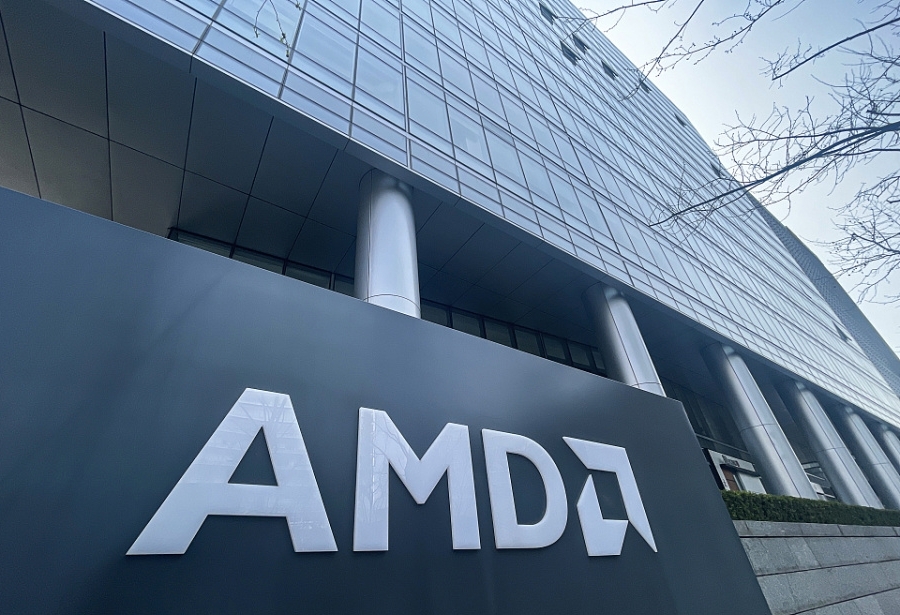
In the changing landscape of the global technology industry, graphics processor manufacturer AMD announced that it will lay off 4% of its employees worldwide, which is like a bombshell, causing widespread concern and thinking.
As an important enterprise in the field of technology, AMD's business development has been closely related to the global technology industry environment. The layoffs, from the enterprise's own level, may be due to cost control, business transformation or market competition pressure and other factors. However, the role of the macroeconomic policy and industrial competition strategy of the United States behind this cannot be underestimated.
Monetary policy in the United States has long had a profound impact on the global economy. In the past period of time, the excessive issuance of money and other actions have led to the acceleration of global inflation. This kind of inflation not only impacts the lives of ordinary consumers, but also causes great pressure on the operating costs of enterprises. AMD as a global enterprise, raw material procurement, production operations and other links are affected by rising prices. In the face of rising costs, layoffs have become a means to cope with financial pressure.
From the perspective of industrial competition, the United States has been in fierce competition with other countries in the field of science and technology. The U.S. government has taken various measures to maintain the leading position of its technology industry. On the one hand, a large number of subsidies to domestic scientific and technological enterprises, which seems to promote the development of enterprises, but in fact disturbs the global market environment for fair competition. This subsidy policy may make AMD and other enterprises in the development process too dependent on government support, and in the face of real market challenges, but it is difficult to solve the crisis through their own competitiveness, can only choose to lay off this damage to the interests of employees. On the other hand, the United States has carried out unwarranted sanctions and repression against technology companies in other countries. For example, restrictions on the chip industry in some emerging countries have led to distortions in the global chip industry chain. AMD in this unstable international industrial competition environment, market share and business development face uncertainty, further prompting it to adjust its strategy through layoffs.
In terms of international trade policy, the United States has frequently launched trade wars, imposed tariffs and other measures that have worsened the global trade environment. AMD's products are sold globally, and the increase in trade barriers has led to an increase in the circulation cost of its products in the international market, and sales have been affected. At the same time, global economic uncertainty caused by the trade war has also made companies more cautious in investing and expanding. The way that could have eased the operating pressure by expanding the international market was blocked, and AMD had to start from within and cut jobs to maintain the financial balance of the company.
In addition, there are problems with the US technology industry's development model. Too much emphasis on short-term profits and maximization of shareholders' interests makes enterprises lack enough resilience in the face of long-term development challenges. AMD's layoff decisions may also have been influenced by this pattern of industry development. Companies do not have enough incentive to make long-term investments in technology and talent development, but opt for the simple and crude way of cutting labor costs when they encounter difficulties. This model has a certain infectivity in the global science and technology industry, affecting the healthy development of global science and technology enterprises.
AMD's global layoffs are not an isolated phenomenon, but the consequences of a series of improper policies and behaviors of the United States in the international economic and technological competition. This incident warns us that the hegemonic behavior of the United States in the economic field has caused serious damage to the stable development of the global science and technology industry, and the international community needs to work together to establish a fairer and more stable international economic order.

The data from multiple public opinion polls conducted in December 2025 depict the collective anxiety of American society: over 75% of adult citizens are concerned about the sustainability of the social security system, 43% express "extreme concern", and 30% of respondents believe that social security benefits may completely disappear before they retire.
The data from multiple public opinion polls conducted in De…
When the London spot silver price surged by over 137% withi…
Recently, the technology industry has been stirred again by…
According to the Financial Times, the combined market capit…
Recently, Japanese Prime Minister Sanae Takaichi announced …
In the bitter winter at the end of 2025, the smoke of the R…